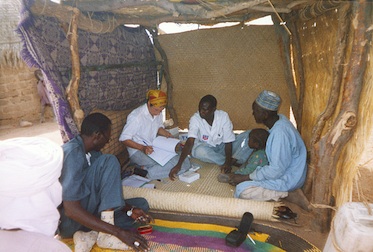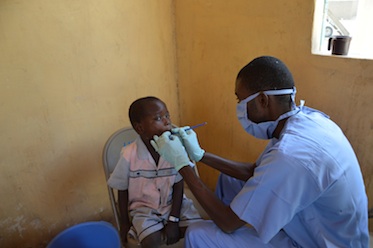- c/o Winds of Hope Foundation, Ch. de Montolivet 19, 1006 Lausanne, Suisse
- +41 (0)21 320 77 22
- info@nonoma.org
« A child who dies of hunger is a child assassinated ». Jean Ziegler
Etiological research

Although noma is well known for the severity of its sequelae and the resultant surgical difficulties, its etiology is still unknown. Its risk factors (malnutrition, debilitating intercurrent diseases and poor oral hygiene) are common to almost all children in these disadvantaged areas. So it remains fundamentally important to promote research to identify the causes of the disease and why it affects some children rather than others.
The Geneva Study Group on Noma (GESNOMA) has set up an etiological research project on noma. This project is being carried out in Niger for fieldwork and in Geneva for laboratory analyses. In Niger, local staff have been employed and trained in diagnosis and sampling techniques.
The bacteriological analysis of gingival specimens, carried out by genetic tests, showed that noma is not associated with any specific bacterial agent or virus. It seems rather to result from an imbalance of oral bacterial flora on a predisposing background. Noma develops on pre-existing gingival lesions (necrotizing gingivitis).
A new phase of field research began in 2013 in Niger. This new component addresses the risk factors for necrotizing gingivitis and its prevalence in regions at risk for noma. This study will better target populations at risk and assess the implementation of measures to prevent gingivitis in order to avoid its evolution towards noma.


